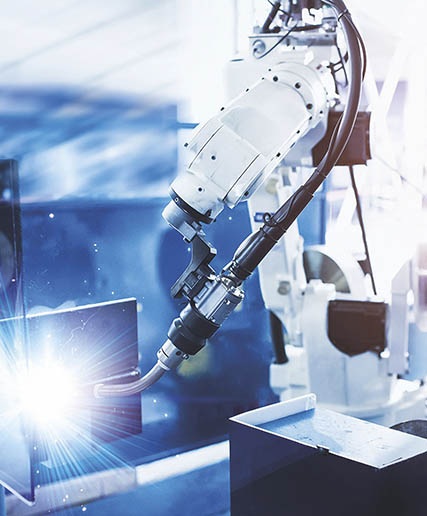Get in touch with us
Open application



Ploeger Oxbo Group is a leading global manufacturer of specialised harvesting equipment. The group develops its progressive manure injection machines in Belfeld (NL): ‘You have to develop machines quickly and get them to market. Otherwise, you’re out of business.’
Engineer Ronald Wouters of Ploeger has acquired tremendous knowledge about these machines throughout his career. He came to Belfeld to set up this new product group for Ploeger. ‘The challenge is: how can such a machine be improved, and what will it take? That’s a complex question, because Ploeger spans an enormous range – geographically, with customers throughout Europe – but also in terms of application areas. One machine works the field at 8 km/h, injects manure into the soil and has to work hard; the other travels at 35 km/h and just spreads solid manure above the ground. This results in very different forces on the vehicles. The components are subjected to completely different loads. That’s what makes this so challenging.’
Time to market
‘Starting from scratch with a product group is quite different from further development of an existing machine. Teething troubles are inevitable. If there are 1,000 decisions to be made, you may choose correctly 990 times, but there will still be 10 problem areas. Ploeger builds 40 to 50 machines per year. We’re talking about a completely different scale from the automotive industry. Due to the lower numbers you can’t use the same development and testing tools as in the automotive market. Nor can you spend five years testing before you enter the market. In that period you would be overtaken by the competition and then you’re out of business,’ says Ronald Wouters. Due to the different applications, there are many variants of each machine. ‘In an ideal world, you would test each application with a prototype at the factory over an extended period. But that’s just not feasible in our business.’ Ploeger does not have the extensive test and simulation environments that large truck manufacturers have. ‘We select customers, who we prefer to call partners, where we run an initial pilot machine for six months to a year, and they provide us with valuable feedback. Not every customer is suitable for this. The key is good feedback. Based on what we learn, we can make focused optimisations.’
Engineering and cable routing
Ploeger’s head office is in Roosendaal. That is also where the company’s 25-man engineering department is located. The ‘application equipment’ branch in Belfeld deals exclusively with the manure spreading machines: engineering, parts, and services. ‘It’s for this branch that we got in contact with VIRO. We were looking for a partner with knowledge of automotive, electronics, hydraulics, and mechanical constructions. VIRO has assisted us with engineering analysis and, equally important, cable routing.